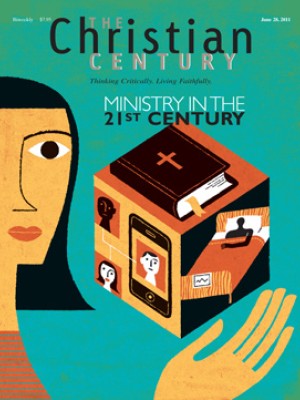The anti-gospel of Ayn Rand
The atheist philosopher and novelist Ayn Rand published more than a
dozen books before she died in 1982. Now some liberal Christians say
another work belongs to Rand's controversial canon: the 2012 Republican
budget.
House Republicans passed their budget along party lines
in April, saying its drastic cuts to federal programs are necessary to
prevent a deficit crisis.
By means of a petition drive, a video,
ads and websites, liberal Christians counter that Rand's dog-eat-dog
philosophy is the real inspiration for the GOP budget and for its
author, House Budget Committee Chairman Paul Ryan (R., Wis.).
"You've
got a guy who is a rising Republican star, and who wrote the budget,
saying he's read her books and Washington needs more of her values,"
said Eric Sapp, executive director of the American Values Network, which
produced a video on the topic. "If you're a Christian, you've got to
ask some serious questions about what's going on here."
In other words, Sapp argues, you can follow Ayn Rand or Jesus, but not both.
In novels such as Atlas Shrugged,
the Russian-born Rand portrays U.S. capitalists as heroes battling an
encroaching government bent on milking their success. In nonfiction
writings, Rand is more explicit about her Objectivist philosophy, which
views religion as a "primitive" sop to the feebleminded masses.
Read our latest issue or browse back issues.
Tea Party Republicans have embraced Rand's writings, particularly Atlas Shrugged,
which some argue foretells the Great Recession and Washington's
extraordinary efforts to end it. Conservative commentator Rush Limbaugh,
former Federal Reserve chairman Alan Greenspan and Supreme Court
Justice Clarence Thomas all call themselves Rand fans.
Biographer
Anne C. Heller says Rand was raised a secular Jew in Russia at a time
when Jews were persecuted by the Russian Orthodox Church. Early on, Rand
decided that the existence of God and the Christian ideal of
self-sacrifice were untenable ideas, Heller said.
"It must be
either reason or faith," Rand said in a 1979 interview. "I am against
God for the reason that I don't want to destroy reason." Rand saw her
materialist philosophy and Christianity as incompatible and hoped to
undermine Judeo-Christian ethics.
Rand's antireligious views,
however, are not as well known as her novels. By highlighting them, Sapp
and liberal Christians hope to discredit the GOP budget and drive a
wedge between the conservative Christian and Tea Party wings of the
Republican Party.
To that end, Sapp, who has directed faith
outreach for a number of Democratic campaigns, is promoting a video in
which evangelical leader Chuck Colson warns Christians to beware of
Rand's "idolatry of self and selfishness."
"I am no fan of big
government, but there are far better ways to critique it than Rand's
godless nonsense, especially for Christians," Colson says in his video.
More
than 6,000 people have signed a petition asking Ryan to put down Rand
and pick up a Bible, according to Kristin Ford of Faithful America, a
left-leaning online group. "Ayn Rand's philosophy of radical selfishness
and disdain for the poor and struggling is antithetical to our faith
values of justice, compassion and the common good," the petition reads.
The
American Values Network video, which Sapp said will be e-mailed to 1.2
million Christians in Wisconsin, opens with antireligious remarks from
Rand and segues into scenes of Republican leaders, including Ryan and
Sen. Rand Paul (R., Ky.), offering high praise of the Russian novelist.
"Rand,
more than anyone else, did a fantastic job of explaining the morality
of capitalism, the morality of individualism," Ryan says in a 2009
Facebook video excerpted in the AVN video. "It's that kind of thinking,
that kind of writing that is sorely needed right now."
Ryan's
spokesman, Kevin Seifert, said the congressman "does not find his
Catholic faith to be incompatible with his feelings for Ayn Rand's
literary works. . . . Rand is one of many figures and authors that
Congressman Ryan has cited as influencing his thinking during his
formative years."
Seifert said that Ryan has not seen these
materials and so would not comment on them. Nor would Ryan offer an
opinion on Rand's antireligious statements. "It's not appropriate for
him to speculate on an individual's personal religious views," Seifert
said.
In a recent letter, Ryan sought to assure New York
Archbishop Timothy Dolan, president of the U.S. Conference of Catholic
Bishops, that the GOP budget aligns with Catholicism. "Those who
represent the people, including myself, have a moral obligation,
implicit in the church's social teaching, to address difficult basic
problems before they explode into social crisis," Ryan wrote in the
April 29 letter.
Ryan argues that his budget is informed by the
Catholic principal of subsidiarity, which holds that large bureaucracies
should not assume tasks best left to individuals. The GOP congressman
also quotes the late Pope John Paul II's warning that government welfare
programs can lead to inertia, overweening public agencies and
ballooning budgets.
Jay W. Richards, a Catholic and author of Money, Greed, and God: Why Capitalism Is the Solution and Not the Problem, calls Ryan, like many Rand admirers, a "cafeteria Randian."
"I
suspect the progressive Christians are confusing that point," he said.
"You can agree with Rand's critique of collectivism as enervating and
soul-destroying without adhering to her overarching philosophy."
But
Heller, the biographer, isn't so sure. "Certainly you can believe that
the state can't do everything for everybody, but if you are a practicing
Christian, you also believe that it is our duty to take care of the
least among us," she said. "And we know perfectly well from history that
churches and individuals can't do that job alone." —RNS






